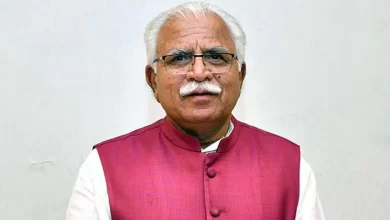
Workforce is being reshaped where personal satisfaction is trumping the classical retirement model of resting only after the age of 60
By Akshita Pandey, Dr Moitrayee Das
Micro-retirement is rising as a defining career pattern among Gen Z, redefining conventional concepts of labour, accomplishment and welfare. Instead of waiting until their 60-somethings to take a prolonged break from the workplace, young professionals are opting to take sporadic sabbaticals during their careers, valuing mental health, self-actualisation, and activity beyond the corporate routine.
This change is not a temporary fad but a reaction to the long-standing frustration with strict work arrangements, burnout and a changing realisation of what constitutes a healthy balance in life (Robinson, 2025). Gen Z has come of age with a world that reminds them continuously of the value of self-care and work-life balance, but has also inherited a working model that frequently disregards these values.
Hustle Culture
The pandemic-fueled growth of hustle culture left its share of disillusioned young workers, who no longer wanted to spend decades of continuous work in one line of occupation. Micro-retirement is a solution to this problem — brief, purposeful breaks that enable one to refresh, explore the world, acquire new skills, or take a break from work-related anxiety without relinquishing their jobs forever. Most Gen Z employees view this as an opportunity to sidestep the pitfalls of burnout and maintain long-term productivity, citing that the classic career path of working diligently until retirement is archaic and impractical (Robinson, 2025).
Micro-retirement is also boosted by a shift in values. In contrast to earlier generations that tended to associate stability with prosperity, today’s young professionals consider stability to be the power to master their time and emotional health.
Others are more than happy to sacrifice a few years of fast-track professional progress for the freedom to step back and re-evaluate what is truly important. Employees who have embraced micro-retirement report that such breaks enable them to indulge in personal development, spend quality time with family, or merely be without the pressures of productivity (India Today, 2025).
This move away from valuing money over time does not make Gen Z financially careless or lazy. Rather, they are redefining ambition by placing priorities on experiences and mental health as much as on financial security. The classical retirement model of working twenty-four seven for 40-50 years and then only resting after the age of 60 is getting increasingly challenged.
Taking Time Off
Delaying one’s fulfilment and happiness to later years seems objectionable for most in view of the doubt over financial stability, the fate of the global climate, and even longevity. The pandemic accentuated these sentiments with youngsters seeing life changing abruptly and workplaces being potentially more taxing. With this in consideration, they are intentionally taking time off from work when necessary as opposed to getting caught up in a cycle of burnout.
However, the economic effects of this way of life cannot be overlooked. Spending a lot of time off needs to be carefully planned financially, and not everybody has the luxury of doing so without experiencing economic repercussions. Critics contend that micro-retirement would make employees more career-unstable, rendering it more difficult for them to establish long-term financial security. Moreover, leaving the workplace repeatedly may introduce gaps in a resume that employers may perceive as negative.
The traditional idea of success — climbing the corporate ladder without breaks — no longer holds the same appeal for a generation that has witnessed the downsides of burnout firsthand
Additionally, micro-retirement also poses questions of long-term financial security, especially savings, pension and career development. Not every career fields this model, and employees who take multiple sabbaticals might have difficulty with career development or salary increase relative to those who remain in continuous employment. In nations with poor social safety nets or employer-funded benefits, taking a long leave of absence from work is even more risky.
Despite this danger, no one can deny that micro-retirement is pushing employers to re-evaluate the way they approach work. A few businesses already have on board policies of regular sabbaticals, flexible working arrangements or unpaid leaves to address this need. In an era where retaining talent is a growing challenge, businesses may need to adapt or risk losing employees who prioritise their well-being over rigid job expectations. The traditional idea of success — climbing the corporate ladder without breaks —no longer holds the same appeal for a generation that has witnessed the downsides of burnout firsthand.
Mental Health
Perhaps the greatest benefit of micro-retirement is its effect on mental health. Burnout is now an epidemic, with most employees feeling exhausted, anxious and detached from work. Conventional corporate hierarchies generally do little to deal with these problems, providing barely more than superficial solutions like wellness programmes or sporadic mental health days.
Micro-retirement also makes it possible to develop new skills and change careers. Young professionals often spend their breaks developing new passions, earning certifications or working on creative pursuits that will potentially become future income generators. This flexibility is in line with the gig economy and portfolio careers, where employees no longer depend on one employer or sector for their whole working lives.
The increasing popularity of micro-retirement also mirrors wider social shifts in what people view as success and happiness. In past generations, career longevity and promotions were the defining measures of professional success. Nowadays, personal fulfilment, mental wellness, and positive experiences are as important — if not more so.
Social media has contributed to the amplification of this change, as individuals are exposed to different lifestyles and professions that prioritise work-life balance rather than unrelenting ambition. Observing colleagues travel, pursue artistic interests or take deliberate work breaks has made it acceptable that success is not always measured by economic achievements (Robinson, 2025).
Limitations
Micro-retirement, of course, has its limitations. It is still largely out of reach for those in lower-paying occupations or those with heavy financial obligations. The capacity for career breaks relies in many cases on having money, family resources or flexible employers, and therefore micro-retirement is still more accessible for those who are privileged.
For this trend to become sustainable and equitable, there have to be structural reforms in workplace policies and social security arrangements that allow individuals to take career breaks without experiencing dire financial penalties (The Guardian, 2025). At its core, micro-retirement is not a temporary fad; it is part of a cross-generational redefinition of work.
Generation Z is not abandoning ambition and financial security so much as calling into question whether one must relinquish well-being to achieve career advancement. Whether this model will be viable in the long term remains to be seen, but it is obvious that the workforce is being reshaped where personal satisfaction is trumping the old structures of the past. The discussion about work is evolving, and with it, the future of careers.







